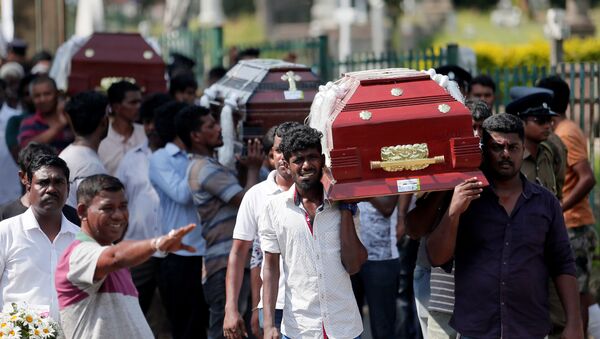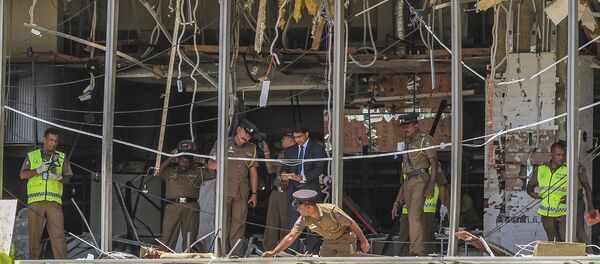Sputnik discussed why Sri Lanka's Christians became a target with Tamsin Taylor, a spokesperson for Open Doors UK, an organisation supporting persecuted Christians around the world.
Sputnik: As you know, Barack Obama and Hillary Clinton referred to the victims of Sri Lanka's terrorist attacks as "Easter worshippers" rather than Christians and this term was caught by the mainstream media. Why exactly has this term been used?
Sputnik: Your organisation, Open Doors, ranked Sri Lanka as the 44th on the watch list of 50 countries where it is most dangerous to follow Christianity. In your opinion, how protected are the rights of Christians in Sri Lanka?
Tamsin Taylor: Up until very recently — in fact this attack — the main difficulties Christians in Sri Lanka have faced have been at the hands of radical Buddhists who believe that Sri Lanka should be a Buddhist country, and they have faced what we call the "squeeze of persecution": harassment, prejudice in work, prejudice in a minority setting in a village situation, that sort of thing; violent attacks have actually been relatively rare at the hands of radical Buddhist extremists. As I'm aware, there has been no significant threat until this weekend from other extremists.
READ MORE: US Embassy Warns More Attacks in Sri Lanka Possible This Weekend
Sputnik: According to the constitution of Sri Lanka, it protects the rights of all religions; in your opinion, what are the main flaws, if there are any, in the current constitution of Sri Lanka concerning religious freedom issues?
Tamsin Taylor: I think without going into the detail of the constitution, what clearly is needed is better protection for people of all faiths to worship and that applies globally, really. Whatever country you're worshiping in, whatever your religion, you should be able to pray without fear.
Sputnik: In your view, how safe are converts from other religions, for example, from Buddhists or Hindu backgrounds, in Sri Lanka?
Sputnik: What should be done to improve the situation regarding the protection of rights of Christians, not only in Asia, but all over the world?
Tamsin Taylor: Article 18 of the United Nations Convention on Human Rights says that everyone should have the right to choose their religion or choose to have no religion, so that freedom of religious belief as laid down by the United Nations should be upheld by all countries and really should be enforced. We're fortunate we are speaking to you from the United Kingdom, [where] people can choose what religion they want to be and they can convert from one religion to another; that should be upheld.
The views and opinions expressed by the speaker do not necessarily reflect those of Sputnik.





